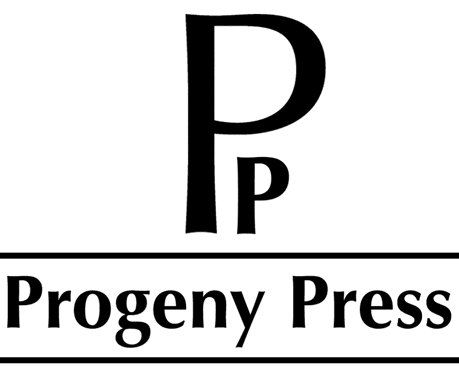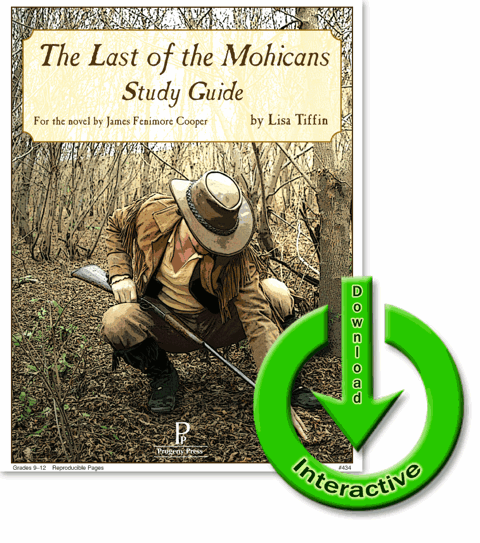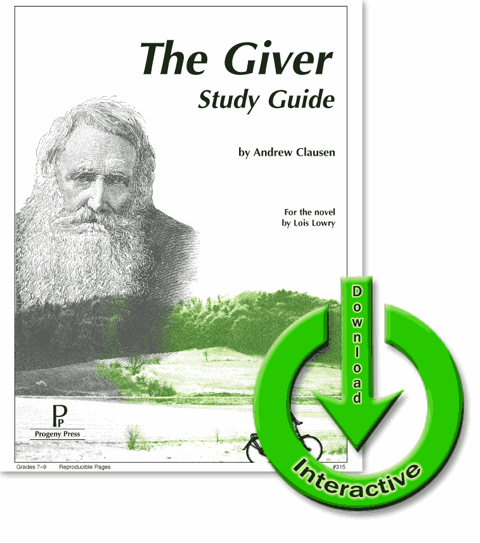


I love questions like these! They make you think about the story, but they also teach you something about writing in the process. You begin to think about what makes a story - about the subtleties that really draw you in.
Like all of the Progeny Press study guides, this one is divided up by chapters (in this case, by three chapter sections - so it is best to assign the book in three chapter "chunks"), with each section following essentially the same format:
- Book Synopsis
- About the Author
- Background Information
- Ideas for Prereading Activities
- (Then Beginning the Chapter Activities) Vocabulary
- Short Answer Recall Questions
- Thinking About the Story (what I would call Comprehension Questions)
- Dig Deeper (questions that tie the story to the Bible and a Biblical Worldview)
Some sections also have "Optional Activities."
Essentially, these study guides remind me a lot of the kind of book units that we would do in elementary-high school in my Gifted and Talented Reading/Literature classes. I *loved* those units. They took you right inside the book and had you turn it inside out. I learned to write by answering those comprehension questions and then sitting at the kitchen table while my dad went over my work and (not so gently, actually) pointed out not only my mechanical errors, but also my intellectual ones. He taught me to write using a framework just like this, and I always knew that I wanted to do the same with my kids. I just assumed that I would have to write the units. Thanks to Progeny Press, I don't have to, though. They have it all covered. You don't have to be teaching a G/T kid to use these units, but if you are, you're covered here. The material is that thorough.
So does Therese like this literature unit? Well, she likes it more than she likes other literature units! Like a lot of 12 year-olds (and a lot of G/T kids!), she's kind of lazy. She'll read college level stuff all day long, and she's happy to discuss it with me. When it comes to sitting down and writing formal answers or essays, though, she'd rather take a pass. Having said that, though, ever since Progeny Press went interactive with its pdfs, I have had far fewer complaints from her! Whereas I used to delight in handwriting all of my work because I loved using a colored pen or new notebook paper, she loves the convenience of typing. Kids these days!
She has not been getting through this guide as quickly has I would have liked, but I have loaded her up with work in all of her classes. So, while she finished reading the book, she has been taking her time with the study guide, and I have decided that I am okay with that. I would rather her take her time and give the more thought-provoking questions the consideration that they warrant than have her dash off answers just to get the guide done. After all, I want her to be receptive to her next Progeny Press assignment!
The Giver
I have mixed feelings about an aspect of this book, but none at all about the study guide. It is excellent. In fact, I am quite impressed that the study guide is recommended for grades 7-9, even though the book is recommended for grades as young as 5th. I was, unfortunately, paying attention to the book grade recommendation when I chose the guide. It turns out that the book was really too old for my children. Fortunately, I was doing a lot of self-editing as I read it to them. It is a skill most of us have probably mastered! For those who may not have read this book, it makes several sexual references almost in passing and in a very non-sexual way. Still, none of my kids is ready for that yet, especially not my very innocent 10 year-old son for whom I intended the guide.
Still, that criticism has nothing to do with this guide which is quite appropriately "graded" at 7th-9th. I knew from the beginning that I would be working on this study guide with Nicholas. He does not have the attention span to sit through anything like this. He has the intelligence and mental ability, just not the emotional maturity and patience. So I ended up reading the book to my kids in two days. They love dystopian fiction. I let Nicholas do the vocabulary sections of the guide by himself, which is right up his alley. He likes things that have beginnings and endings and are easily quantifiable. Similarly, he has no trouble (or, rather, little trouble) with what I call the "comprehension" or short answer questions. Mostly these are just recall. I have to work with him because his first line of defense is, "I don't know" or "I forgot." Without me sitting there, he would just be content with that and close up shop.
"Thinking About the Story," "Dig Deeper," and "For Discussion" we did orally. His writing skills are not such that it would have been a huge value-add for him to do these on paper, and it was far more useful for us to talk through these questions than for him to struggle to get his thoughts down on paper. Plus, as it turned out, because I had read the book to him, I had ended up anticipating several of the questions (I didn't peek at the guide!), and we had actually already touched on several of the things raised in the guide.
So, I had two different children use the Progeny Press guides in two different ways, but each got a lot out of theirs. You don't have to write the answers to everything in these guides for them to be very useful tools! I think that's a really important thing to realize. As with all things homeschooling, there is not a wrong way to do things. Different approaches will work with different children. I absolutely love these guides. They are very reminiscent, to me, of something from my public school days that worked *really* well. (Caveat: I had a stellar public school education in a large district in a large city.) Progeny Press sells a plethora of guides for all ages from the youngest elementary grades through high school, so there is sure to be one that suits your needs. To see how guides at all levels can be used, click the banner below.
Still, that criticism has nothing to do with this guide which is quite appropriately "graded" at 7th-9th. I knew from the beginning that I would be working on this study guide with Nicholas. He does not have the attention span to sit through anything like this. He has the intelligence and mental ability, just not the emotional maturity and patience. So I ended up reading the book to my kids in two days. They love dystopian fiction. I let Nicholas do the vocabulary sections of the guide by himself, which is right up his alley. He likes things that have beginnings and endings and are easily quantifiable. Similarly, he has no trouble (or, rather, little trouble) with what I call the "comprehension" or short answer questions. Mostly these are just recall. I have to work with him because his first line of defense is, "I don't know" or "I forgot." Without me sitting there, he would just be content with that and close up shop.
"Thinking About the Story," "Dig Deeper," and "For Discussion" we did orally. His writing skills are not such that it would have been a huge value-add for him to do these on paper, and it was far more useful for us to talk through these questions than for him to struggle to get his thoughts down on paper. Plus, as it turned out, because I had read the book to him, I had ended up anticipating several of the questions (I didn't peek at the guide!), and we had actually already touched on several of the things raised in the guide.
So, I had two different children use the Progeny Press guides in two different ways, but each got a lot out of theirs. You don't have to write the answers to everything in these guides for them to be very useful tools! I think that's a really important thing to realize. As with all things homeschooling, there is not a wrong way to do things. Different approaches will work with different children. I absolutely love these guides. They are very reminiscent, to me, of something from my public school days that worked *really* well. (Caveat: I had a stellar public school education in a large district in a large city.) Progeny Press sells a plethora of guides for all ages from the youngest elementary grades through high school, so there is sure to be one that suits your needs. To see how guides at all levels can be used, click the banner below.



No comments:
Post a Comment